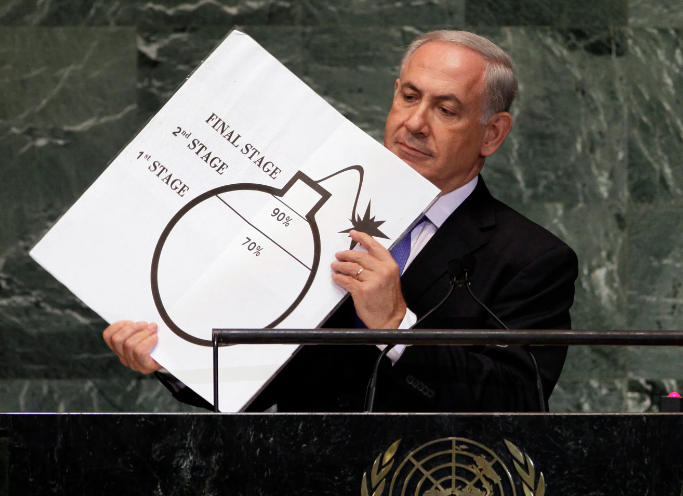Virendra Pandit
New Delhi: Not only did Israel’s intelligence networks, like Mossad, fail to predict a Hamas invasion, but even its military’s operational preparedness collapsed for some time, a former Israeli intelligence chief said on Tuesday.
Prime Minister Benjamin Netanyahu, popularly known as “Bibi”, despite being a security veteran himself, remained stuck in domestic politicking and ignored intelligence warnings. This gave Hamas an opportunity to breach the notion of Israeli “invincibility,” according to experts.
The ISIS-like terror attack on October 7 and Israel’s brutal response thereafter has already claimed over 1,600 lives as the Jewish nation continued to level the Gaza Strip to smithereens in a relentless bombing of the impoverished area of 2.3 million Palestinians.
A combination of intelligence and operational failures on the part of Israel led to the massive death count in the Hamas attack on Saturday, Israel’s former military intelligence head, Major-General Amos Yadlin (Retd) told an Indian TV news network on Tuesday.
The Hamas invasion by land, sea, and air was a “surprise attack,” he admitted.
“There was no early warning. Either signals were not there, or not picked up. It was a surprise attack, very much like September 11 (9/11), Pearl Harbour, and the Yom Kippur War. This should be investigated at the end of the war. We are now looking forward,” he said.
Major-General Yadlin said the intelligence failure was followed by an operational failure. “The very sophisticated fence (between Israel and Gaza Strip) should have given time to the armed forces to stop the enemy, even if they didn’t get an early warning. There are sensors along the border and somebody was able to neutralize them. This must also be investigated,” he said.
Comparing Hamas with ISIS, he said, “They are killing women, and children in a very cold way. This Israel won’t tolerate. We are now moving to change the rules of the game.”
Asked whether domestic political developments in Israel, such as controversial judicial reforms, distracted the security apparatus, he said, “You cannot avoid the question of the leadership. The buck stops at the Prime Minister’s desk. He neglected national security, he ignored warnings from defense ministers, intelligence, independent analysts, and me.”
Israel, he said, is now rebuilding the fence that was breached by Hamas operatives and moving from a defense to attack mode. “Israel has decided that Hamas and its military power will not remain in Gaza after the end of this operation,” he said.
The Oslo Accords, he said, barred any Palestinian State entity near Israel from maintaining a military. “Unfortunately, the Netanyahu government gave Hamas the opportunity to build a military in Gaza. This should be changed.”
To a question on who is backing Hamas in its fight against Israel, the veteran pointed to Iran, Syria, Hezbollah (Lebanon), and Houthis (Yemen). “Hamas is not 100 percent an Iranian proxy, but they are getting a lot of Iranian money and weapons. This is a time to look at Hamas as if it is ISIS. They behave like ISIS. In a way, even ISIS was not as cruel as Hamas. They rape, kill young women. Hamas must now be eradicated, destroyed,” he said.
Israel, he said, was very efficient in stopping earlier attacks by Hamas. “We built a wall that extended 30-40 meters underground. We were very effective against rockets, both long- and short-range, by having an early warning system. We developed the best anti-rocket system, the Iron Dome. When Hamas understood rockets wouldn’t work and tunnels they could not use, they developed another strategy. Here is the Israeli failure. We were not ready for an attack through the fence above the ground and simultaneously in 10-15 areas. This is an attack Hamas planned and executed in a way that surprised Israel,” he said.
Asked about the humanitarian concerns over Israel’s announcement of a “complete siege” in Gaza, he said the attack on Israel has erased the thought that Hamas cares for the 2.3 million people in the Strip, about their future, and their lives. “We are now in a full siege of Gaza. It will lead to a humanitarian crisis. But it’s Hamas who should be blamed. They have taken Israeli children, women, and the elderly (as captives). Israel is going to be tough. We have paid a high price. They want war, they will get war,” he said.
To a question on how the war will impact Israel’s diplomatic efforts in the region, including the move towards normalizing ties with Saudi Arabia, he said, “We are a peace-loving nation. With Egypt, Jordan, and the UAE. But if somebody pushes us to a corner, Israel knows how to win.”
On whether he sees India brokering, given its ties with both countries, the veteran said, “Israel and India relations are very important. We are welcoming any attempt by your Prime Minister to mediate peace.”

